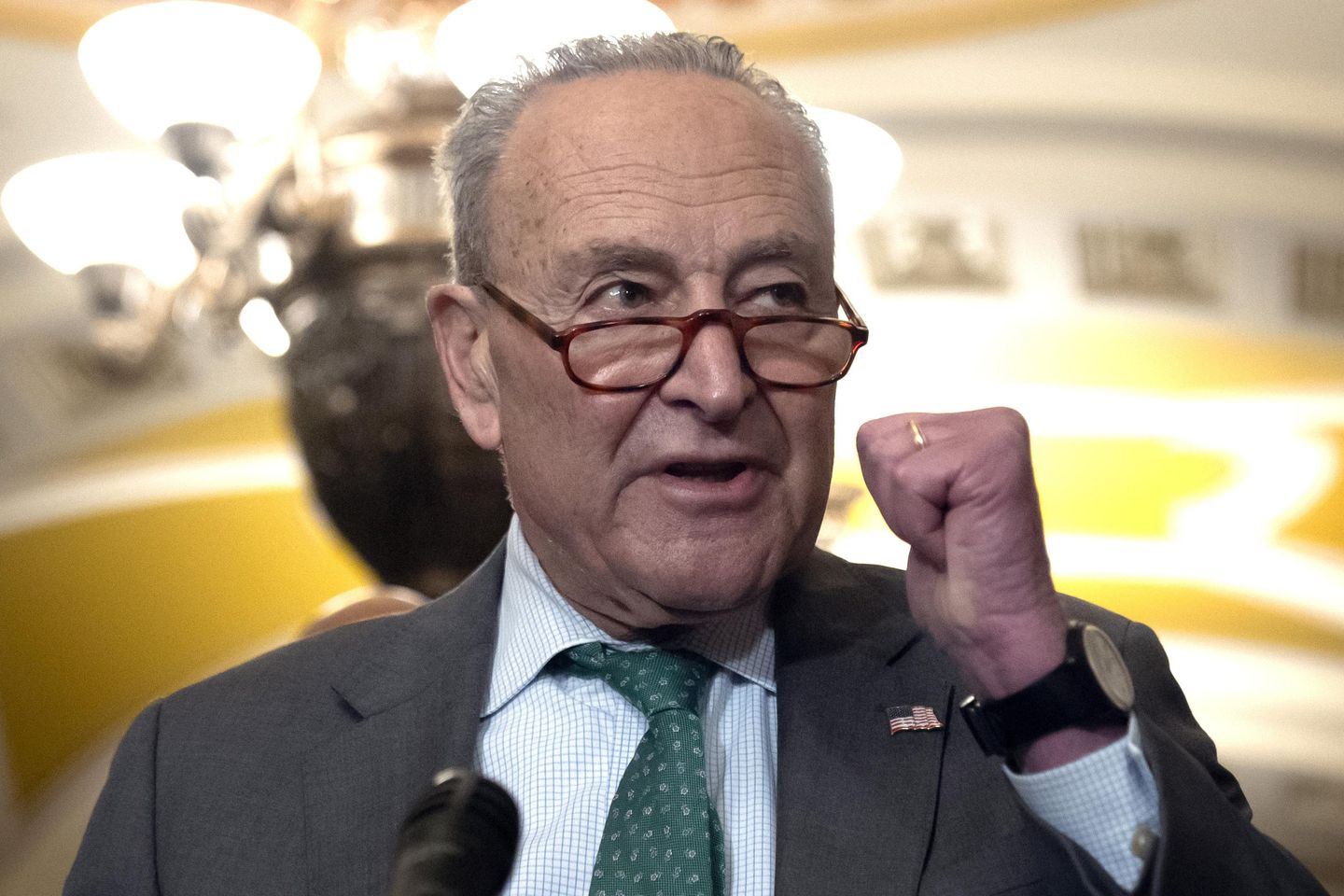
Senate Democrats are planning to be more “aggressive” in pushing back against President Trump’s and Elon Musk’s efforts to dismantle the federal bureaucracy.
The tactical shift comes after Senate Democrats split over how to approach a government funding fight earlier this month. Senate Minority Leader Charles E. Schumer’s decision to advance a GOP stopgap bill to avert a government shutdown drew consternation from others in the party who wanted to go to battle.
Senate Democrats spent the week, their first back in session since the government funding vote, discussing how to regroup. They said they’re focused on the battles still to come against Mr. Trump, Mr. Musk and his cost-cutting Department of Government Efficiency and Republicans in Congress planning more cuts to government programs.
“We’re coming together around a more aggressive set of tactics and strategy, and you’ll see the results in the coming week,” Sen. Richard Blumenthal, Connecticut Democrat, told The Washington Times.
Mr. Blumenthal declined to elaborate. But the timing coincides with Senate Republicans’ plans to bring an updated budget blueprint for President Trump’s agenda to the floor.
“The next big fight we expect will be over their effort to provide big tax cuts for rich people at the expense of everybody else,” said Sen. Chris Van Hollen, Maryland Democrat.
Republicans can adopt the budget blueprint without Democratic votes because it is not subject to the filibuster, nor is the subsequent budget reconciliation package it will set up.
Democrats can force unlimited amendment votes to put Republicans on the record on any number of contentious issues in a process known as a “vote-a-rama.”
They’re also looking ahead to the late summer or early fall deadlines for raising the debt limit and funding the government. Democratic votes will be needed on the latter and maybe the former, although Republicans are currently planning to include a debt limit increase in their party-line reconciliation bill.
Sen. Ron Wyden, Oregon Democrat, said the message he heard from constituents during four town hall meetings he held last week is that Democrats should not let Mr. Trump and Republicans bully them or push them around – and he agrees.
“If you don’t stand up now, you’re at more risk than the next time,” he said. “And I told people we got big things coming up, the debt ceiling and the fall budget issues.”
In the interim, Mr. Wyden said Democrats will continue their relentless messaging spelling out exactly what the Republicans are planning.
“The essence of the Trump economic package is cut things like Medicaid and SNAP in order to have more money for the billionaires and the tax breaks,” he said.
Sen. Ben Ray Luján, New Mexico Democrat, said constituents are asking him to “speak up, stand up and make a difference.” Those calls, he said, are coming not just from Democrats but also from constituents who voted for Mr. Trump in the last election but did not expect him to cut as many government programs as he has.
“This is not what they signed up for,” Mr. Luján told The Times. “At a senior center, a registered Republican, said, ’Look, I don’t agree with you on everything, but all that I’m hearing about Social Security and Medicaid and I can’t pick up the phone and call people anymore.”
While Mr. Schumer faced blowback in New York for his vote to advance the government funding bill, including calls from local progressive groups for him to resign from leadership, other senators said the reaction in their states was more muted.
“Surprisingly mild” is how Maine Sen. Angus King, an independent who caucuses with the Democrats and voted for the government funding bill, described it.
“There was no hostility,” he said. “Most of the hostility was on social media.”
Sen. Ruben Gallego, an Arizona Democrat who voted against the spending bill, had called for a “post mortem” on the party’s strategy and said he is happy to see that happening now.
“I’ve been speaking a lot to Senator Schumer, and he’s been talking to us in caucus about what we saw happened, what he thinks can do in the future to be more prepared for it and for all the different alternative ways that we may have to fight,” he said.
Mr. Gallego and several other Democrats declined to reveal specific strategies the party discussed during their caucus meetings but a few offered some general assessments about lessons learned from the government funding fight.
“One, we’re going to have to do a better job of anticipating what we’ll be confronted with. In this last case, I think it was pretty clear that we had a train coming right for us for a long time,” Mr. Van Hollen said. “And second is we’re going to need to find a way to build more unity.”
Sen. Elizabeth Warren, Massachusetts Democrat, said Democrats are united against the GOP agenda of tax cuts for billionaires paid for by cuts to government programs millions of Americans depend on and believe public sentiment is on their side.
“If people are ignored, if co-presidents Musk and Trump continue their lawless activities, the pushback from the public will be real,” she said.
Asked if it would be real enough to shift Republican votes, she said the president has at times reversed course on some of his decisions when he has received blowback.
“Look at the red-light, green-light game on Trump on tariffs,” Ms. Warren said. “The tariffs are on. He gets pushed back. The tariffs are off. The tariffs are back on. He gets pushed back. The tariffs are off. Donald Trump may think he is king, but he does not rule in a vacuum.”








